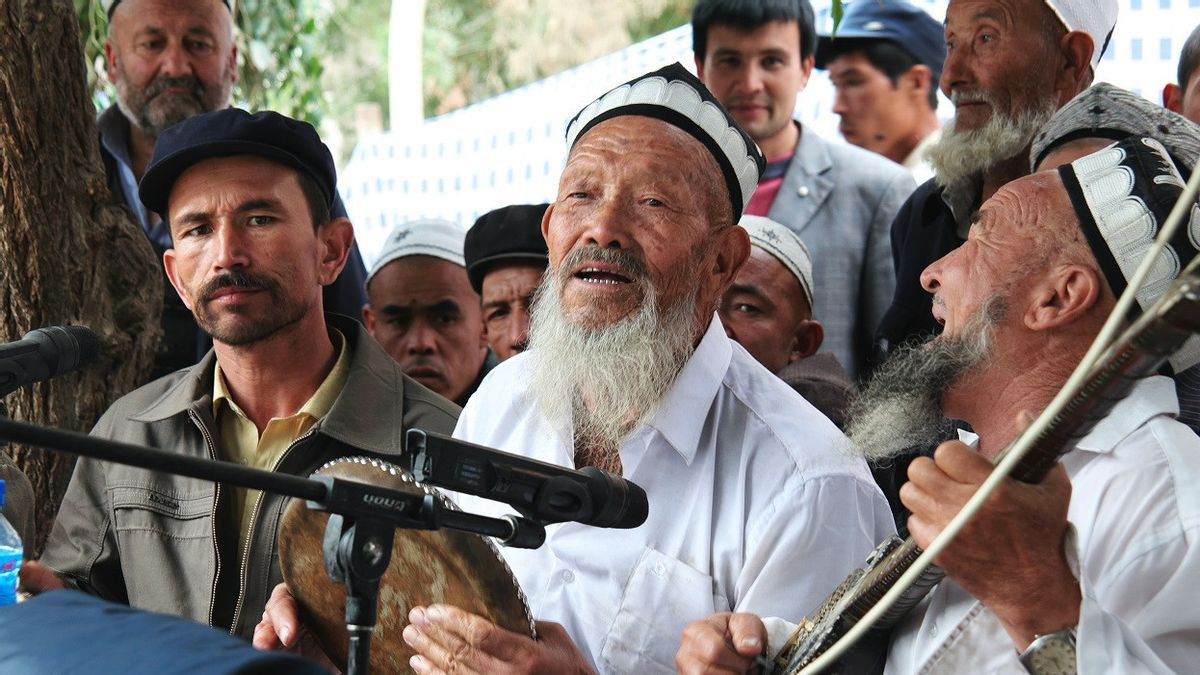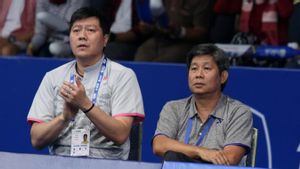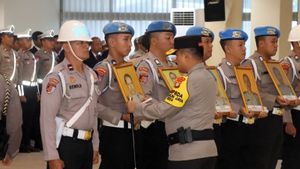JAKARTA - Today, September 10, people around the world commemorate Human Rights Day. This warning should be louder in China. Because, the day before, on September 9, an independent UK-based court determined that the country had committed genocide against ethnic Uighurs in Xinjiang.
The trial of the Uighur case referred to birth control and sterilization measures allegedly carried out systematically by the state against Uighurs. Sir Geoffrey Nice, the British lawyer presiding over the trial, was quoted as saying by the BBC, revealing that China had "influenced a deliberate, systematic and concerted policy" to bring about "long-term reduction of the Uighur and other ethnic minority populations."
Sir Geoffrey said the panel at the trial believed senior officials including Chinese president Xi Jinping were responsible for abuses against Muslim minorities in the Xinjiang region. To note, the panelists consist of lawyers and academics.
When reading the court's ruling, Sir Geoffrey said there was no evidence of mass killings in Xinjiang. But he said the alleged attempts to prevent births amounted to genocidal intent. The panel also said it had found evidence of crimes against humanity, torture and sexual violence against Uighurs.
The findings of this independent British court have no legal force and are not binding on officials. But organizers said they initially intended to add to the evidence surrounding the accusations against China and reach an independent conclusion on the issue of genocide.

Meanwhile, the Chinese government itself has denied all allegations of human rights abuses in Xinjiang. The Chinese Embassy in London said the political, economic, social and religious rights of all ethnic groups were fully guaranteed there. So what exactly is happening in Xinjiang?
What's happening in XinjiangAccording to Amnesty International's latest report in July, it called the Chinese government's actions against people in the country's Muslim minority groups crimes against humanity. The report examines the mass imprisonment, torture, and systematic persecution by the state of citizens in Xinjiang Province, including Uighurs and Kazakhs. They also discovered the Chinese government's attempts to shut it down.
At least more than 50 people who have been detained in Xinjiang camps testified in Amnesty International's report. Each of them admitted that he was tortured and mistreated.
The report indicates the eradication of Islamic religious practices in China. Jonathan Loeb, Amnesty International's senior adviser and lead author of the report, said in an interview with NPR that millions of Muslims in Xinjiang have been affected by the situation there.
"Hundreds of thousands of people have been sent to internment camps over the past four years. And millions of Muslims in Xinjiang have been affected by the situation there," Loeb said. He said only a few people can and dare to raise this issue to the public.
"What Amnesty has been trying to do over the past 18 months is to identify and contact other people who have managed to get out of Xinjiang, but were unwilling, for security reasons, to speak publicly beforehand. So we spent a lot of time and effort tracking down 55 former prisoners from the camps who didn't speak before."

Amnesty International's findings concluded that everyone sent to an internment camp was subjected to torture or other ill-treatment. Both as a cumulative result of daily life in the camps and as a result of physical torture during interrogation and sentencing while in the camps.
"About 17 or 18 former detainees that Amnesty interviewed were interrogated and physically tortured while immobilized in tiger chairs. The chairs are made of steel where the hands and feet are attached to the chair and people are literally unable to move," Loeb said.
According to Loeb, the real threat is not only for the future but for the present. Many of the rumors have actually happened. Things that smell like Islamic practices such as praying, going to the mosque, teaching religion, wearing religious clothes, giving names to children that sound Islamic, have been banned. "As a result, in order to survive, Muslims in Xinjiang have changed their behavior in a way that doesn't allow them to engage in religious practices anymore."
The United Nations records about 1.5 million Uighurs in internment camps in China. Anthropologist who is a senior member of the Xinjiang camps research, the Victims of Communism Memorial Foundation, called the case the largest detention of an ethnoreligious minority since the Holocaust. This according to him meets the UN definition of genocide.
*Read other information about HUMAN RIGHTS, read another interesting article from Ramdan Febrian Arifin.
Other BERNASThe English, Chinese, Japanese, Arabic, and French versions are automatically generated by the AI. So there may still be inaccuracies in translating, please always see Indonesian as our main language. (system supported by DigitalSiber.id)









